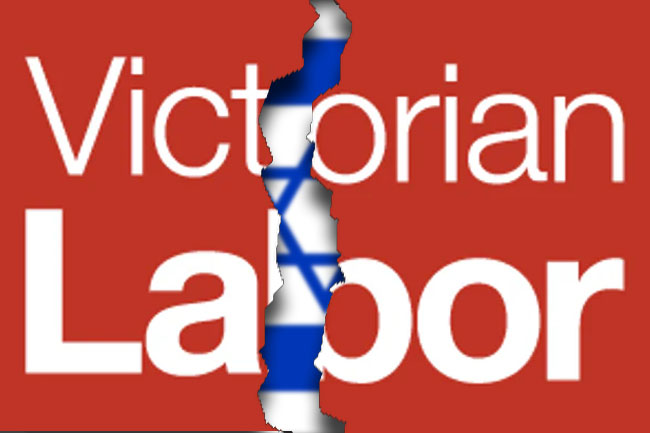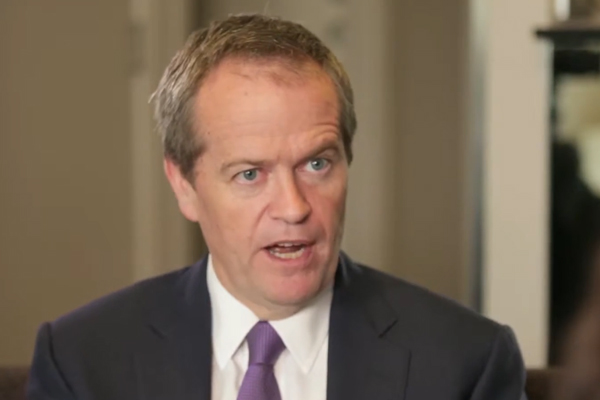Peter Wicks takes a look at a Pet Industry News article which attacks the Victorian minister Jaala Pulford's sweeping reforms to stamp out puppy farms.
AN ORGANISATION known as the Pet Industry Association of Australia (PIAA) – about which I have written before – have attacked the Victorian Government via quarterly publication, Pet Industry News.
There is no doubt that PIAA perform an important role. Just as those who skin minks for their fur, or those who club baby seals over the head with a bat need an industry body to support their industry and provide advice, so too do puppy factories and their retail outlets.
That’s where PIAA come in.
The purpose and point of the article in question was to attack the Victorian Minister for Agriculture Jaala Pulford, who in just over a year has done more to stamp out the puppy factory trade than every other state combined. This is despite the efforts and lip service of other states such as NSW who have, under the current government, held two parliamentary inquiries into this industry and have yet to make any legislative changes at all as a result of them — time and taxpayer money well spent.
Upsetting the pet industry is Minister Pulford’s plan to restrict the number of breeding dogs per site as well as the number of litters. However, it is the ban on the sale of puppies in pet stores that has caused PIAA the most headaches, as their factory farming members and their pet store partners will now face the prospect of having to make a living in an ethical manner.
Written by Bob Croucher, the piece was titled, 'Politics and Common Sense'.
I had some issues regarding the opinions of Bob — opinions that I thought defied common sense. I wrote to Bob about these issues and gave him a chance to explain.
Bob Croucher — all about the dollars, not the sense.
Bob's response started with an attempt to distance PIAA from the Pet Industry News publication with this statement:
'Firstly let me point out that while I have an association with the PIAA the magazine Pet Industry News is an independent magazine and views expressed by me or my writers are not necessarily those of the PIAA.'
I’m not sure why Bob would feel the need to distance PIAA from the newsletter but I can see how someone may make the connection.
The newsletter credits PIAA on its administration page and later dedicates a whole page to listing PIAA’s staff. Each and every edition published has a column from PIAA’s CEO and PIAA’s president; Bob himself is vice president of PIAA and for years has been PIAA’s media spokesperson.
The edition which included this article had four pages dedicated to PIAA’s pet expo, three pages by PIAA’s vice president and media spokesperson, a page dedicated to the 'CEO and Presidents Report' and another page dedicated to PIAA’s staff listing with a membership form.
It appears to me Pet Industry News is either a PIAA opinion publication or a means of shifting PIAA dollars to evade tax — but that’s just my opinion, which appears to be based on “common sense”.
Bob’s opening paragraph included this statement regarding kittens:
'…pet shops do a public service in vaccinating, microchipping, vet-checked, and recommending de-sexing these animals before making available for homing.'
For starters, pet shops make kittens 'available for homing' in the same way Harvey Norman make televisions “available for homing”. They sell them for a profit.
When I queried Bob on this, his response continued to insinuate that pet stores are more akin to rescue centres than retail outlets:
"Common sense” – rescue centres take in unwanted kittens, vaccinate, microchip, vet check and de-sex the animals before “selling” the animal to the consumer. Pet shops take in unwanted kittens, vaccinate, microchip, vet check before selling the animal to the consumer. The only difference is the de-sexing.
Actually Bob, that’s not the only difference, but your complete and utter ignorance of the animal rescue industry and how it operates is duly noted.
New pet shop rules to stop puppy farms come into force in Victoria v/ @theage http://t.co/ErFrDWouCY #AdoptDontShop pic.twitter.com/R4VEtsXlYk
— Animals Australia (@AnimalsAus) July 2, 2015
Retailers are there for profit, rescue centres are there to provide animal welfare. Rescue centres don’t make any profit on the animals that they rehome, they attempt to recoup costs — often not even coming close. When I say “rehome”, I don’t mean rescue centres sell to whoever strolls in the shop's front door like one of PIAA’s retail stores, I mean they go through detailed checks to ensure the animal goes to a suitable home.
Most rescue centres rely on fundraising to operate, retailers rely on selling goods for profit. For many, a large portion of that profit is through the supply of cheap puppies from hideous puppy factories, which stores sell at drastically inflated prices to gullible members of the public who are essentially sold a lie.
As mentioned earlier, Bob's article was highly critical of Victorian Minister for Agriculture, Jaala Pulford. At one point, the article claimed that when making the decision to ban the sale of puppies in pet stores the government, '... made their decision based on advice received from a vigilante group who operate illegally ... '.
I thought this statement was a bit bitter, twisted and based on an alternate reality given the organisations involved in the consultation process, such as the RSPCA and Oscar's Law.
Making his comment even more bizarre was the fact that PIAA were also involved in giving advice during Minister Pulford’s consultation process — as were some of PIAA’s puppy factory promoting allies.
I thought it was a bit odd that Bob would refer to PIAA and its allies as an illegally operating vigilante group.
Bob’s response started out with a denial: 'I cannot speak for the AAPBD but the PIAA was not part of that advice process.'
OK, fair enough then.
However, he then goes on to talk about how PIAA were directly involved in the process, and even states: 'I personally attended the meeting with Jaala Pulford.'
Finally, Bob takes credit for changing Ms Pulford’s view regarding the sale of kittens. A bit weird for someone who originally claimed to have had nothing to do with the process.
I don’t quite understand how PIAA were not involved in a private meeting they attended but my style of “common sense” clearly differs from Bob's.
In regard to the illegal vigilantes, Bob responded:
'I do not believe that you would be happy having someone come onto your premises, damaging and stealing your property. This is happening to shops and breeders who are operating ethical businesses.'
I would point out to Bob that if shops don’t like people coming onto their property, all they need to do is close the door, although I can’t guarantee this will help with profits. As for the breeders and ethical conduct, viewers can make up their own mind regarding ethics after watching Oscar's Law '2015 – Year in Review' video that shows some of PIAA’s stores suppliers:
'They used photos that were on overseas websites.'
I asked Bob flat-out to back that statement up, requesting he:
'... point out to me, one example of an overseas picture being used in an Australian puppy factory awareness campaign – just one would be great.'
Despite being asked directly, Bob was unable to provide a single solitary example of this being the case. Not even one.
I contacted Tanya, the President of Oscar's Law who told me:
"We have never used overseas photographs to demonstrate conditions in Australian puppy factories. We don't need to as we have thousands of photographs demonstrating the shocking conditions."
Bob’s deception, however, does highlight something very important.
While Australian advocates don’t need overseas footage to make their point, overseas advocates view the footage and photos from Australian pet store suppliers as extreme and glowing examples of the worst possible case scenario for animal welfare and so, often use them on their sites.
This is something we should all be ashamed of and I for one am thankful that at last we have a minister in Jaala Pulford that is prepared to address the situation.
At the end of the article, Bob explains to readers that he recommends that consumers seeking to purchase pure-bred puppies visit the breeders premises to be sure the breeder is ethical.
Sound advice Bob.
Although ethical registered breeders will actually insist that consumers come to the premises so that they can assess the puppy is going to an ethical and suitable home, as well as giving consumers a chance to meet the puppy's parents.
It is, in fact, in pet stores such as PIAA’s where this is not only impossible but every possible thing is done to ensure that consumers do not have any details of the origins of their pets, let alone have an opportunity to visit or meet the parents. I wonder why this is the case?
Bob also continues to claim that pet stores only make up a small percentage of the number of puppies sold in Australia, around 10 per cent is the number he often quotes.
However, there is a concept Bob fails to grasp. Virtually every court case with dodgy breeders facing animal cruelty charges, every photo you see of dogs in despair inside cages and every video you have seen that shows dogs living in deplorable conditions in puppy factories, is related to the supply of Australian pet stores.
So perhaps that is the 10 per cent in which the problem lies. It’s a great place to start with legislation changes, at least.
Bob ended his response to me with these words of wisdom: 'Animal welfare problems will not be solved by what you write. They will only be resolved with “common sense".'
Thanks Bob, I was planning to solve all the animal welfare issues in my next article then move onto achieving world peace and curing cancer with a few words.
The industry has been dealing with your brand of “common sense” for 25 years.
That’s why we still have the problem.
You can read more by Peter Wicks on his website Wixxyleaks or follow him on Twitter @madwixxy.

This work is licensed under a Creative Commons Attribution-NonCommercial-NoDerivs 3.0 Australia License
Puppy factories and their lobbyists under the spotlight, by Peter Wicks. #puppyfarms @madwixxy http://t.co/YoMEoAYTI4
— IndependentAustralia (@independentaus) August 9, 2015
Monthly Donation
Single Donation
No more puppy farms in Victoria soon. Pretty happy with that. pic.twitter.com/NYxjpoXnwS
— Ant (@AntKaplan) February 16, 2015
Support fair and ethical media. Subscribe to IA for just $5.









